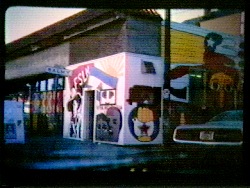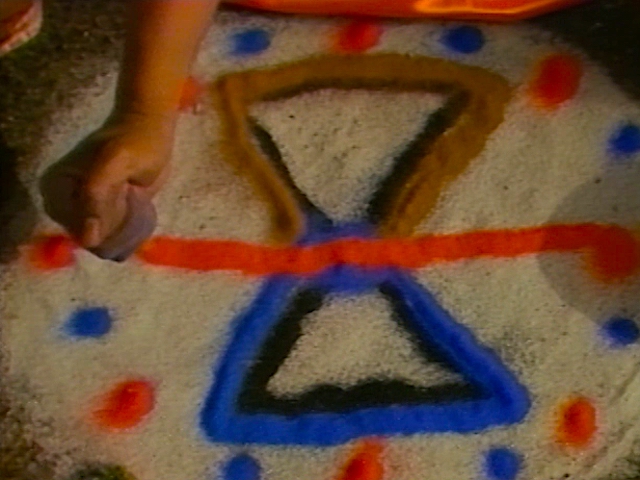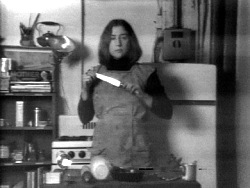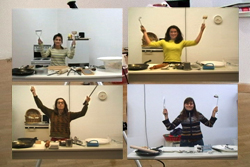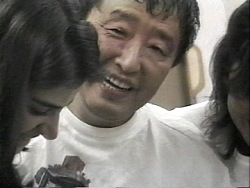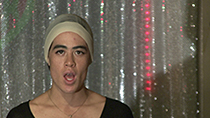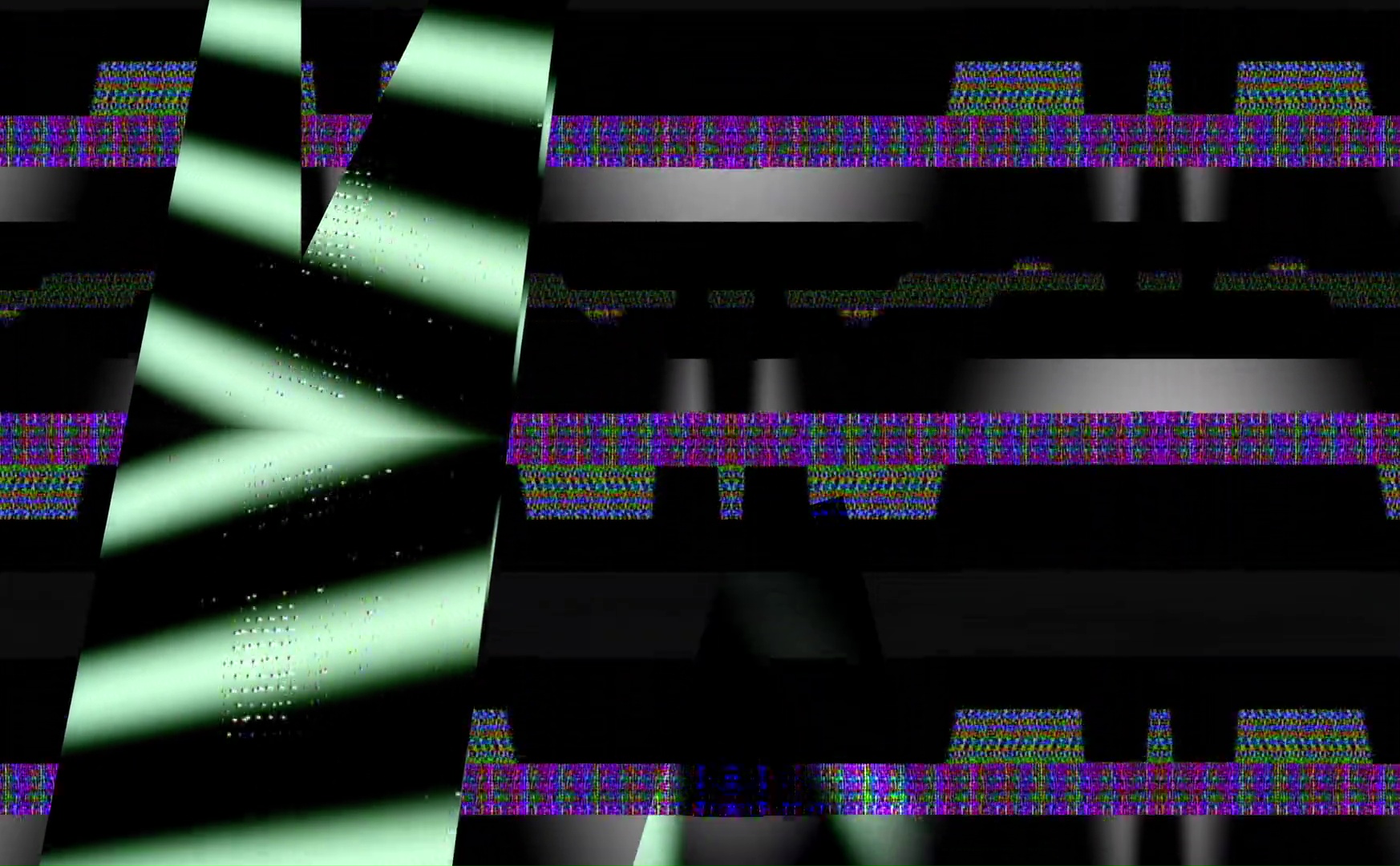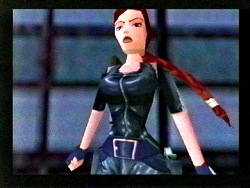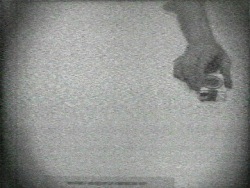Search Results
Search Results
Title Results
Your search returned 802 Titles
Secrets From the Street examines the intersection of cultures and classes as exemplified by the street life of San Francisco's Mission District. This videotape, produced for an exhibition held jointly at San Francisco's City Hall and its Museum of Modern Art, argues — against the show's theme and...
Self Divination speaks poetically about origins and the realities of the African diaspora.
Semiotics of the Kitchen adopts the form of a parodic cooking demonstration in which, Rosler states, "An anti-Julia Child replaces the domesticated 'meaning' of tools with a lexicon of rage and frustration." In this performance-based work, a static camera is focused on a woman in a kitchen. On a...
In 2003, for A Short History of Performance, Part II, at the Whitechapel Gallery in London, Rosler announced an open call for a live restaging of her seminal 1975 video piece Semiotics of the Kitchen. Twenty-six women participated in a rotating performance of Rosler's script at the Whitechapel. On a set stocked with culinary utensils, the participants were taped and "broadcast" on television monitors throughout the gallery via live feed. Semiotics of the Kitchen: An Audition documents the preliminary rehearsals with Rosler and the public event, the "audition."
In this "video poem," Vicuña gathers endangered native seeds in the Colchagua region, in the foothills of the Andes mountains in Chile, on May 28, 2015. This work recreates and continues her work on behalf of seeds, which began in 1971, in Santiago de Chile.
This chapter of Kubota's ongoing video diary is an intimate and humorous portrait of her husband, artist Nam June Paik, as he undergoes physical therapy after an illness.
Filmed at the Silver Platter, the bar that previously housed Wu Tsang’s club party Wildness, Shape of a Right Statement is a short work featuring Tsang’s recitation of one section of “In My Language,” a text by autism rights activist Mel Baggs.
"A time-based collage mixing analog recordings with digital editing and composing that creates dynamic space: here for a minute, and abruptly, gone." -LoVid
Re-editing footage collected from months of playing Tomb Raider, Ahwesh transforms the video game into a reflection on identity and mortality. Trading the rules of gaming for art making, she brings Tomb Raider's cinematic aesthetics to the foreground, and shirks the pre-programmed "mission" of its heroine, Lara Croft. Moving beyond her implicit feminist critique, she enlarges the dilemma of Croft's entrapment to that of the individual in an increasingly artificial world.
"Shifted From the Side is stylistically similar to To And Fro. Fro And To. And To And Fro. And Fro and To, and was probably made the same afternoon, in the back of the Leo Castelli Gallery. The object used to demonstrate five possibilities (of what could, but not necessarily should, be the work) is a pack of Lucky Strike cigarettes. As in the first tape, the camera is static. The pack is on the right side of the screen; as the work and text are spoken the pack is slid (shifted) back and forth. The hand leaves the object each time an act is completed before sliding it (from side to side) across the table." — Alice Weiner
